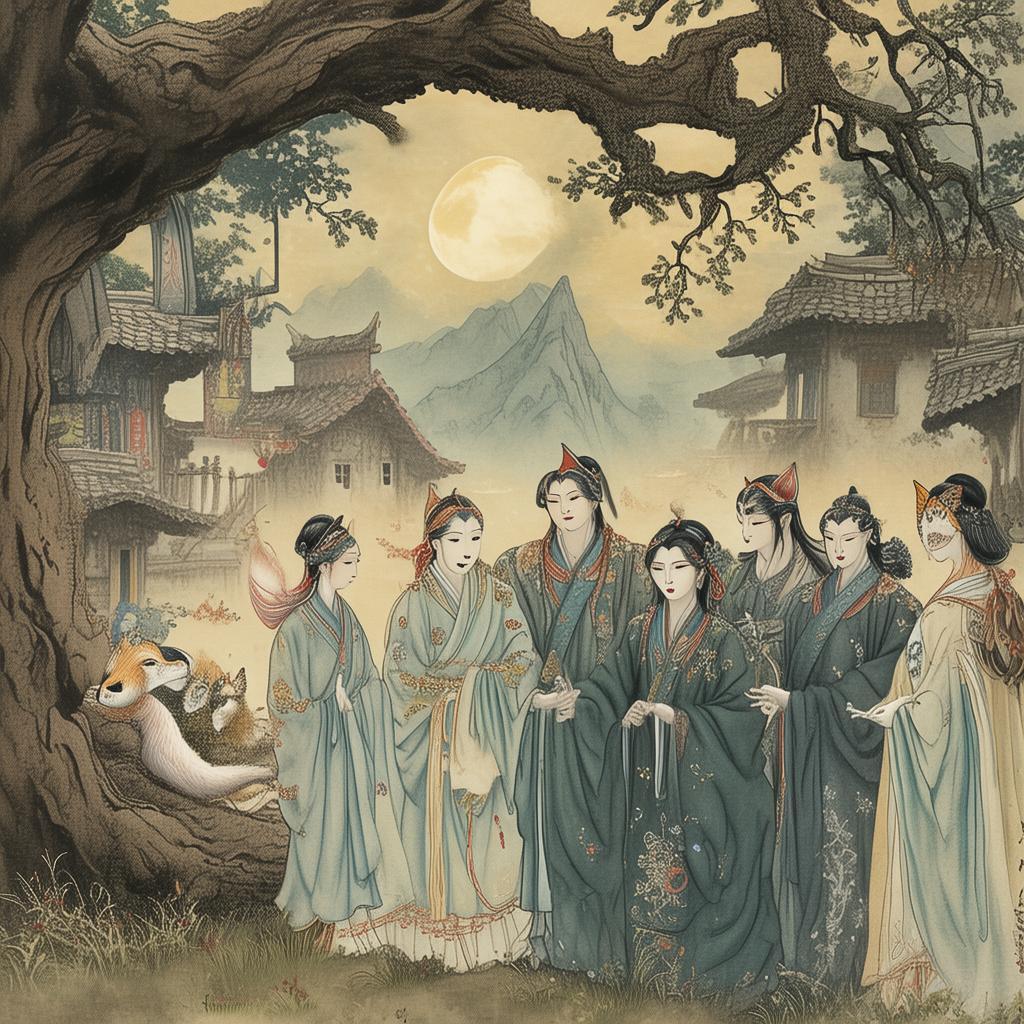The Bard's Divine Requiem
In the heart of ancient China, where the mountains whispered secrets and the rivers sang tales, there lived an immortal bard named Lin. His name was whispered in hushed tones, for it was said that he had the power to move the heavens with his words. Yet, despite his immortality, Lin felt a void within him—a void that could only be filled by the divine inspiration of a true masterpiece.
The legend of the Divine Requiem was a tale that had been passed down through generations. It spoke of a poem so powerful that it could change the very fabric of reality. Only the purest of hearts and the most skilled of hands could compose it. Many had tried, but none had succeeded. The poem was said to be hidden in the sacred mountains, guarded by spirits and the perils of nature.
Lin, driven by an insatiable thirst for the divine, decided to embark on a quest to find the poem. He traveled through the land, his heart filled with a mix of hope and fear. He sought guidance from wise sages, who spoke in riddles and cryptic prophecies, each hint guiding him closer to his goal.

One evening, as the moon hung low in the sky, casting an ethereal glow over the landscape, Lin reached the entrance to the sacred mountains. The path ahead was treacherous, with cliffs that seemed to fall into the abyss and rivers that roared with a fury that could sweep away the bravest of souls. But Lin pressed on, his resolve unyielding.
As he ventured deeper into the mountains, Lin encountered a spirit, a guardian of the poem. The spirit spoke in the form of a whispering wind, its voice a blend of countless voices from the past and future. "You seek the Divine Requiem, but know this: it is not a poem to be written, but a song to be sung. Only one who has felt the pain of love and the joy of life can compose it."
Lin, feeling the weight of the spirit's words, pressed on. He traveled through the mountains, his journey marked by trials and tribulations. He faced the fury of the rivers, climbed the steepest of peaks, and endured the cold that seemed to seep into his bones. But each trial brought him closer to understanding the spirit's message.
One fateful night, as the stars shone brightly, Lin found himself at the source of a hidden spring. The water was crystal clear, and as he knelt to drink, he felt a surge of inspiration. He began to write, his quill moving with a life of its own. The words flowed from his heart, a blend of his own experiences and the wisdom of the spirits he had encountered.
As he wrote, Lin realized that the Divine Requiem was not just a poem, but a testament to the human condition. It was a song of love, loss, joy, and sorrow. It was a song that spoke to the very essence of what it meant to be human.
When he finished, Lin felt a profound sense of peace. He knew that he had found what he sought, not just in the form of a poem, but in the realization that the divine was not something to be found, but something to be created. He had become the guardian of the Divine Requiem, a poet whose words could inspire and transform.
The legend of the Divine Requiem spread far and wide, and Lin's name was etched into the annals of history. His story became a tale of inspiration, a reminder that the divine could be found not just in the world beyond, but in the depths of the human soul.
As the years passed, Lin continued to travel, his heart filled with the joy of creation. He shared his story, his words, and his wisdom with all who would listen, and the world was forever changed by the immortal bard's quest for the divine.
✨ Original Statement ✨
All articles published on this website (including but not limited to text, images, videos, and other content) are original or authorized for reposting and are protected by relevant laws. Without the explicit written permission of this website, no individual or organization may copy, modify, repost, or use the content for commercial purposes.
If you need to quote or cooperate, please contact this site for authorization. We reserve the right to pursue legal responsibility for any unauthorized use.
Hereby declared.









